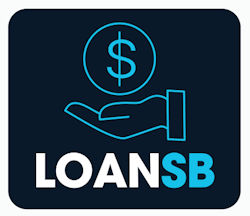20 Tips to Negotiate Better Terms on Your Business Loan

Securing a business loan with favorable terms can be a game-changer for your company. Whether you’re looking to expand operations, invest in new equipment, or improve cash flow, getting the best possible loan terms can save you significant amounts of money and reduce financial stress. If you already have an established relationship with your bank, you’re in a prime position to negotiate better terms. Here are 20 tips to help you leverage that relationship and secure the most advantageous loan conditions, starting with the first five:
1. Leverage Your Relationship History
Banks value long-term relationships with their clients. Use your history of positive interactions, timely repayments, and overall good standing to your advantage. Remind your banker of your loyalty and consistent financial behavior, which can serve as strong reasons for them to offer you better terms.
2. Demonstrate Your Business’s Growth and Stability
Provide updated financial statements, growth metrics, and projections that highlight your business’s success and stability. Show how your business has grown since you first started working with the bank and how continued support can benefit both parties. A stable and growing business is less risky for lenders, which can lead to better loan terms.
3. Highlight Your Future Plans and Financial Needs
Clearly outline your business’s future plans and how the loan will support your growth. Explain how the funds will be used, whether it’s for expansion, equipment, or working capital. Banks are more likely to offer favorable terms if they understand how the loan will contribute to your business’s success and ensure their investment is secure.
4. Compare Competitor Offers
Research and gather loan offers from other banks or financial institutions. Use these offers as a bargaining chip during your negotiations. Let your bank know that while you prefer to maintain your relationship with them, you have competitive offers that you are considering. This can prompt your bank to match or even beat those terms to retain your business.
5. Negotiate for Lower Interest Rates and Fees
Interest rates and fees are critical components of your loan’s overall cost. Negotiate for a lower interest rate by emphasizing your good credit history, relationship with the bank, and the financial stability of your business. Additionally, ask for a reduction or waiver of fees such as origination fees, processing fees, and prepayment penalties. Even small reductions can lead to significant savings over the life of the loan.
6. Offer Additional Collateral
If you’re looking for a better interest rate or more favorable terms, offering additional collateral can make a significant difference. Collateral reduces the risk for the bank, making them more likely to offer better terms. Make sure to evaluate the value of the collateral and discuss how it will impact your loan agreement.
7. Propose a Flexible Repayment Schedule
Negotiate a repayment schedule that aligns with your business’s cash flow. For example, if your business is seasonal, you might benefit from a repayment plan that allows for lower payments during off-peak months and higher payments during busier periods. Flexible repayment schedules can help manage cash flow more effectively and reduce financial strain.
8. Request a Longer Loan Term
Extending the loan term can lower your monthly payments, making it easier to manage your cash flow. While this may increase the total amount of interest paid over the life of the loan, it can provide immediate relief and more financial flexibility. Discuss the possibility of extending the loan term with your bank and evaluate the long-term impact on your finances.
9. Negotiate a Grace Period
A grace period can provide much-needed breathing room before you start making loan repayments. This can be especially useful if you need time to invest the loan funds and start generating revenue. Request a grace period at the beginning of the loan term to help ensure your business is in a strong position when repayments begin.
10. Consider a Loan Refinance
If you’ve been with your bank for a while and have a good track record, discuss the possibility of refinancing your existing loan. Refinancing can help you secure a lower interest rate, better terms, or consolidate multiple loans into a single, more manageable payment. This can improve your overall financial health and reduce your monthly obligations.
11. Utilize Your Bank’s Relationship Manager
If your bank assigns a relationship manager to your account, make sure to leverage this resource. Relationship managers are there to help you navigate the bank’s products and services and can advocate on your behalf. Schedule a meeting to discuss your loan needs and explore how they can assist in negotiating better terms.
12. Bundle Services for Better Rates
Banks often offer better terms to clients who use multiple services. If you already have a business checking account, credit card, or other financial products with your bank, discuss bundling these services. Banks may be willing to offer better loan terms in exchange for your continued loyalty and additional business.
13. Present a Solid Debt Repayment History
Your history of repaying debts on time is a strong negotiating tool. Present documentation that shows your consistent repayment record, not just with the bank in question but also with other creditors. Demonstrating your reliability can give the bank confidence in your ability to repay the new loan, leading to better terms.
14. Showcase Your Business’s Market Position
If your business holds a strong position in its market, use this as leverage. Share market research, industry awards, and other recognitions that highlight your business’s stability and growth potential. A bank is more likely to offer favorable terms to a business that is seen as a leader or strong contender in its industry.
15. Negotiate for Covenants That Favor You
Loan covenants are conditions set by the bank to ensure the loan is repaid. While these conditions are often non-negotiable, you can sometimes negotiate the specifics. For example, you might negotiate for covenants that allow for more flexibility in cash flow management or operational decisions. Make sure the covenants are realistic and won’t hinder your business operations.
16. Prepare for Rejection and Have a Backup Plan
Even with the best preparations, there’s a possibility that your initial negotiation may not succeed. Be prepared for this outcome and have a backup plan. Knowing that you have other options, whether it’s seeking loans from other banks or alternative financing, can give you more confidence in your negotiations and might prompt your bank to offer better terms.
17. Ask for a Fixed Interest Rate
Interest rates can fluctuate, which can make your loan more expensive over time. If you’re currently on a variable rate, negotiate for a fixed interest rate. This provides certainty in your financial planning and protects you from potential rate increases in the future.
18. Discuss Early Repayment Options
If your business does well, you might want to repay the loan early. However, some loans come with prepayment penalties. Negotiate these terms upfront to either eliminate these penalties or reduce them significantly. This gives you the flexibility to repay the loan faster without incurring additional costs.
19. Negotiate for a Line of Credit Instead of a Term Loan
If your financing needs are ongoing rather than a one-time requirement, consider negotiating for a line of credit instead of a term loan. A line of credit can provide more flexibility as you only borrow what you need, when you need it, and typically only pay interest on the amount you use.
20. Seek Professional Advice
Negotiating loan terms can be complex, and it’s okay to seek help. Consider hiring a financial advisor or consultant who specializes in business loans. They can provide valuable insights, help you understand the fine print, and advocate on your behalf during negotiations. Their expertise can often lead to significantly better loan terms.
Securing better terms on your business loan can significantly impact your company’s financial health and future growth. By leveraging your existing relationship with your bank, demonstrating your business’s stability, and preparing thoroughly for negotiations, you can increase your chances of obtaining more favorable loan conditions. Remember, effective negotiation is not just about getting lower interest rates but also about finding terms that support your business’s unique needs and long-term goals. With these 20 tips, you are well-equipped to approach your bank confidently and secure the best possible terms for your business loan. Take the time to negotiate wisely, and your efforts will pay off in the form of financial stability and growth opportunities for your business.

Please contact us if you have any feedback or questions.


